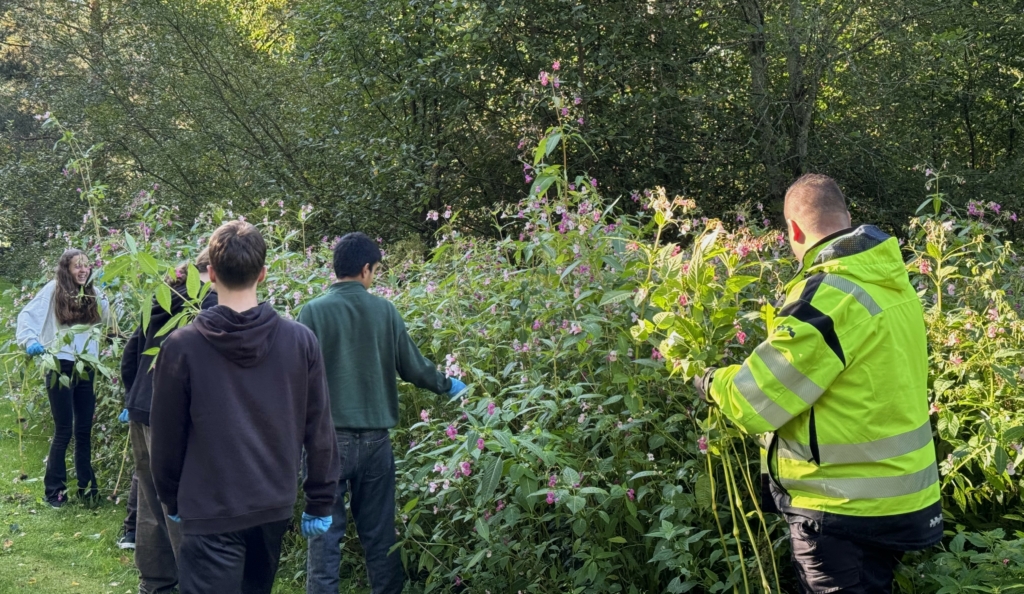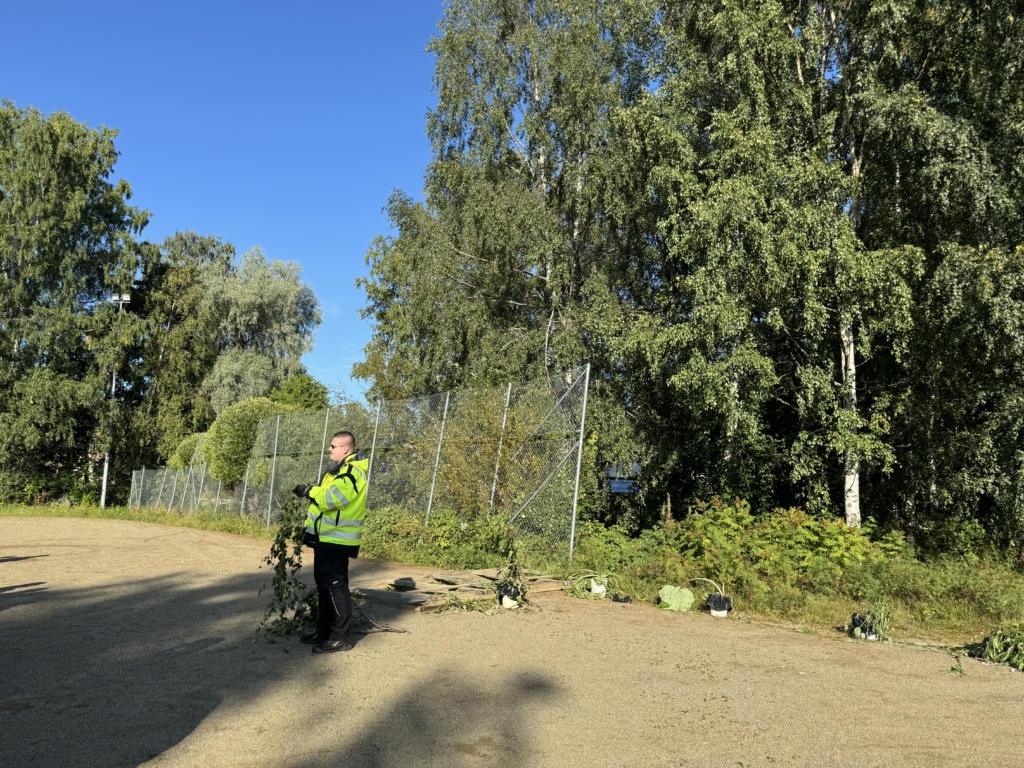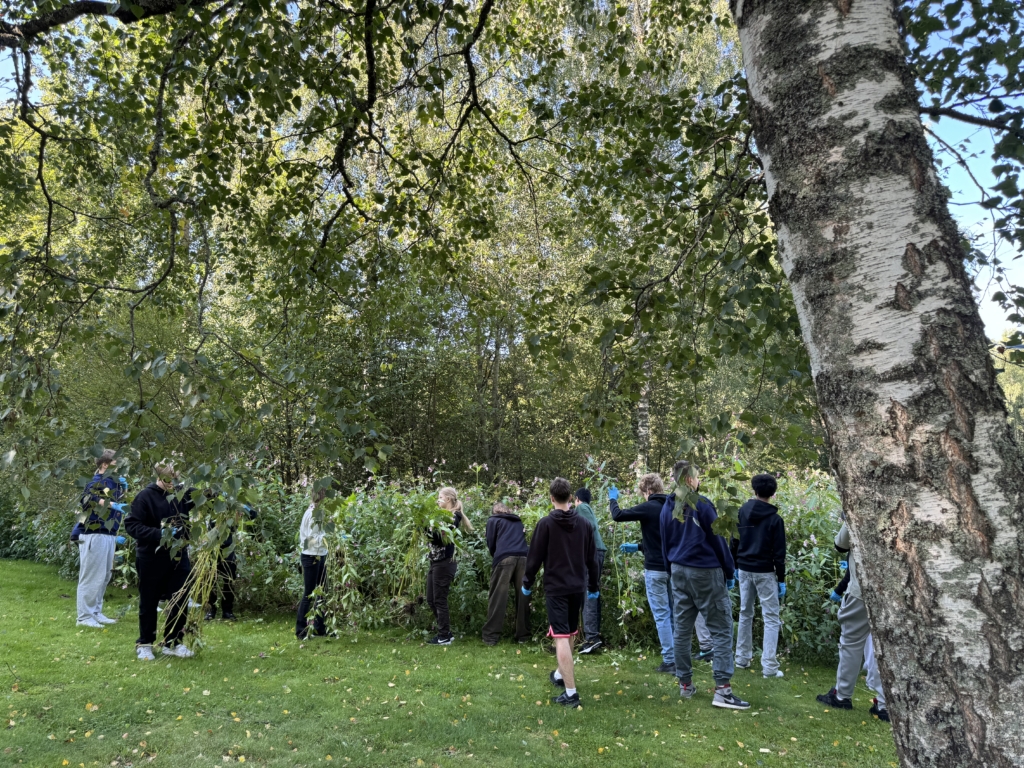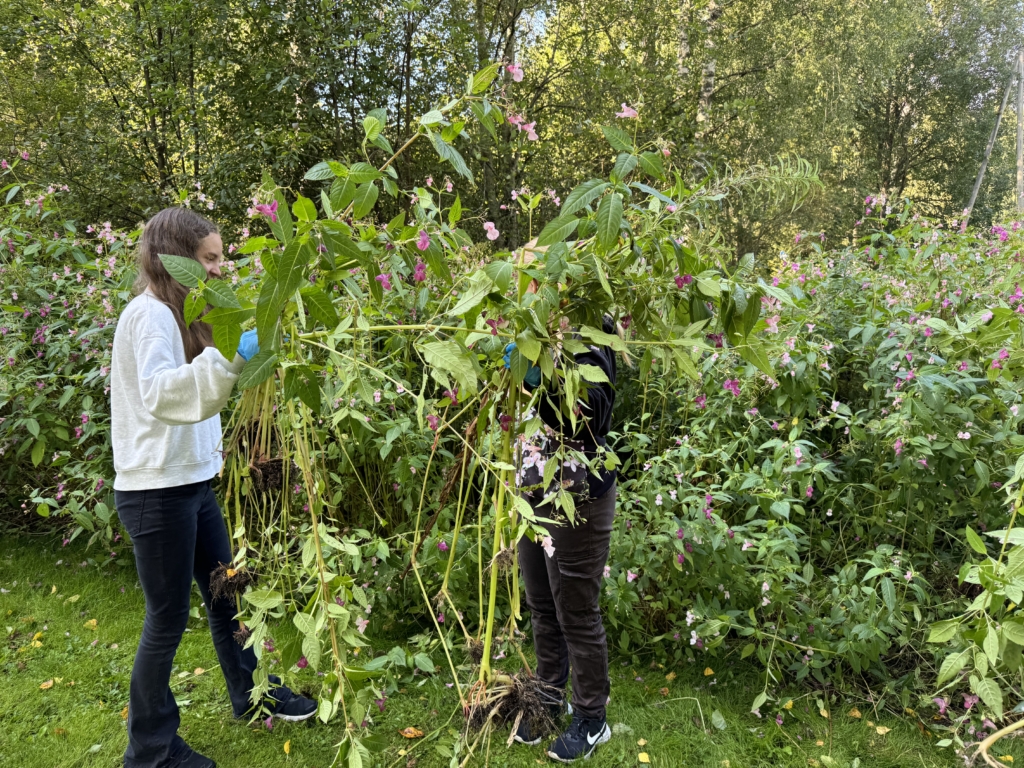
Article categories: Archive News
Invasive species education at Variska Comprehensive School
Published: 5.9.2024
On Tuesday 27 August, the 8th graders of Variska Comprehensive School had the chance to learn about enhancing biodiversity, when Simo Marttila, project coordinator for the City of Vaasa, visited their biology class to talk about invasive alien species.
Simo Marttila, project coordinator for the City of Vaasa, began his talk with a general overview of invasive species, explaining the concepts of non-native species, invasive alien species, and naturalised species. The students were also shown different invasive species, including Himalayan balsam, rugosa rose, butterbur and Persian hogweed.

After a short introduction, the students headed off to a nearby Himalayan balsam outbreak site along Lehtikuusentie.
– In biology, it is common practice to have classes outdoors. However, this is the first time we have had an outside expert give a lesson. This is also fun for the pupils, as they get to learn through active participation, says Sarianna Nikkola, a biology teacher at Variska Comprehensive School.

Invasive species are a threat to nature
Invasive alien species are a major threat to biodiversity. They displace native species and cause significant annual costs in terms of control and economic losses.
This is not the first time Variska Comprehensive School has used a workshop-style approach to teach about invasive alien species.
– We have uprooted invasive species from the school yard during biology classes before, and over the years their prevalence has clearly decreased, says Nikkola.
The invasive species project aims to increase biodiversity
The workshop was part of the INSPIRE invasive alien species project, led by Marttila. Variska’s biology teachers Sarianna Nikkola and Tarja Kelpe and Deputy Principal Leena Virkki were also involved in planning of the workshop.
The INSPIRE project will run for three years, aiming to reduce invasive alien species and increase biodiversity. The project is funded by the EU’s Interreg Aurora Programme.

The project is testing whether new ways can be found to reduce the time needed to completely eradicate invasive alien species. The project aims to raise awareness of invasive alien species, among other things. One way of achieving this is to organise educational workshops.
– For young people, learning about invasive species is an important step toward a broader understanding of environmental diversity. Young persons who learns to identify invasive species can significantly contribute to their control by removing even individual invasive plants, thereby preventing outbreaks, says Marttila.
Read more on the project’s website.
